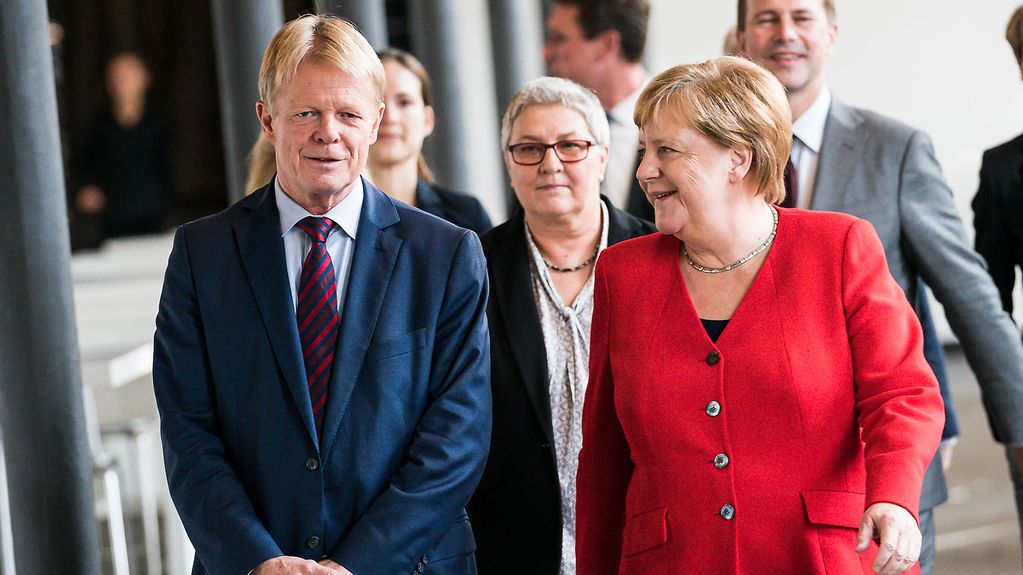German Confederation of Trade Unions turns 70
Since it was first founded, the German Confederation of Trade Unions (DGB) has fought for social justice and better working and living conditions. Today, the DGB is celebrating its 70thanniversary. Chancellor Angela Merkel attended the celebrations.
2 min reading time

Chancellor Angela Merkel and Reiner Hoffmann, President of the German Confederation of Trade Unions, during the 70th anniversary celebrations
Photo: Bundesregierung
Today, DGB and its member trade unions continue to work for social progress and thus for social cohesion, as they have always done – with innovative collective bargaining policy, the introduction of a legal minimum wage and the return to parity in statutory health insurance, with employer and employee each paying half.
Angela Merkel praises DGB
In her speech, Chancellor Angela Merkel praised the German Confederation of Trade Unions, which she described as "a stalwart champion of solidarity, tolerance and cohesion in our country". She called on the DGB to preserve its values and principles in future too.
"In future too, preserve the unity and the solidarity of the DGB! Play your part in shaping Germany successfully at times like this, when we must put in place good conditions for the working world of the future, and continue to preserve what we took over from the men and women who created our Basic Law or constitution," continued the Chancellor.
For greater collective bargaining coverage
A good 100 years ago, employers recognised the trade unions as equal partners. In the Stinnes-Legien Agreement the two sides agreed to negotiate and regulate working conditions, including wages and working hours independently, without state intervention. Today, this autonomy to enter into collective bargaining agreements is even anchored in the German Basic Law. Industrial action, such as strikes, is also protected under German constitutional law, if the goal is to achieve collective bargaining agreements.
Employees in companies covered by collective bargaining agreements earn significantly better and have better protection than their colleagues who do not have this cover. Currently, however, fewer than 50 per cent of the workforce are employed in companies covered by collective bargaining agreements. The voluntary acceptance of collective bargaining agreements is a fundamental element of the social market economy. For the German government it is thus a major concern to strengthen companies’acceptance of these collective bargaining agreements.